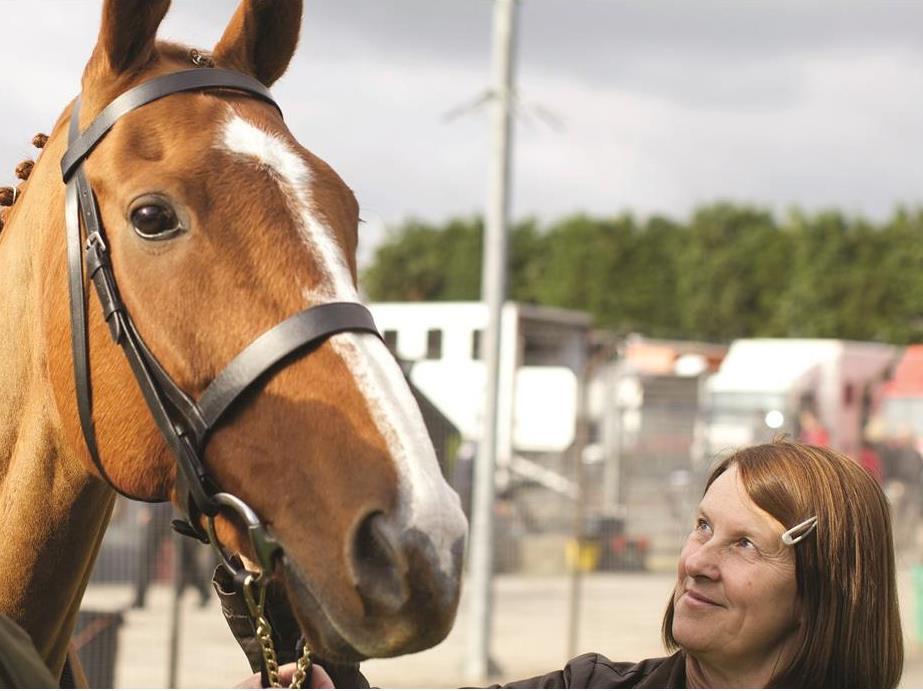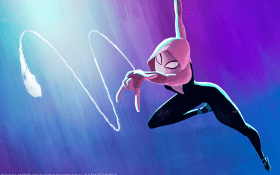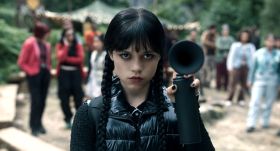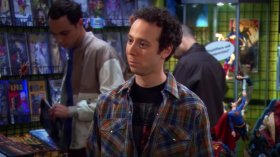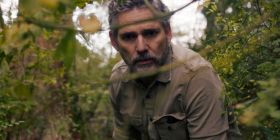A horse that racing experts dismissed for its pedigree proves its doubters wrong, and a small-town syndicate of first-time breeders does the same. In telling the tale of the famous steed and the group of Welsh villagers that nurtured not only his career, but his very existence, Dark Horse: The Incredible True Story of Dream Alliance doesn’t shy away from their underdog status or their similarities. Like creature, like owners, the documentary advises; however in exploring the unlikely success story that both navigate, the film relies upon the comparison for good reason.
Indeed, the ‘nags to riches’ narrative (as the British press dubbed it at the time) gets its potency from the pragmatism, fortitude, resourcefulness and perseverance of its subjects — animal and human alike — in overcoming the many odds against them in entering the so-called sport of kings. The fairytale feat the newcomers sought to conquer wasn’t just a series of races, but a prestigious pastime historically aligned with the wealthy, the accompanying attitude of superiority and exclusivity that reinforces class divisions, and the universal desire to control their own futures.
In 2000, Blackwood barmaid and supermarket cleaner Jan Vokes sparked the modest change of fate that brightened the lives of her townsfolk and brought Dream Alliance into the world. Certain that training a racehorse was something that she could do and determined to prove it, she gathered a group of friends and acquaintances willing to contribute £10 per week, found a mare and a stallion, and then enlisted a professional to ready the resulting animal for competition. When the colt’s initial sprints showed promise, Vokes and her colleagues were elated. When a rollercoaster ride of placings, injuries, comebacks and wins eventuated, their wildest dreams were exceeded.
In making her fourth feature effort, seasoned documentarian Louise Osmond (Six Million Dollar Conman) understands the importance of the personal over the formulaic, and of the accounts of the ordinary folks who experienced Dream Alliance’s triumph over the well-worn path they traverse. When the latter appears to stick to a true but predictable script, the former wraps up that routine feeling with ample sincerity and charm. It is Vokes and her cohort’s reflections, remembrances and genuine concern for the state, welfare and happiness of their beloved creature that endears, as well as their embodiment of the outsider spirit, rather than the facts they espouse. Dark Horse proves powerful through their words and warmth, enlivening a story so expected otherwise that it cries out for a fictionalised adaptation.
That the film does so by compiling its content in a standard stylistic fashion, leaning heavily on talking heads and archival footage, is understandable; earnestness and emotion in the retelling don’t just prevail over the tale itself, but over the material presented. In fact, though the pace might be too leisurely, the score a touch wistful and the overall sheen tinted with clear affection, there’s little within Dark Horse: The Incredible True Story of Dream Alliance that strikes a chord as strongly as watching Vokes and her pub pals light up while sharing their incredible journey.
Rating: 3 stars out of 5
Dark Horse: The Incredible True Story of Dream Alliance
Director: Louise Osmond
UK, 2015, 85 mins
Perth International Arts Festival
December 28 – January 10
Film season: until April 10
Actors:
Director:
Format:
Country:
Release:
